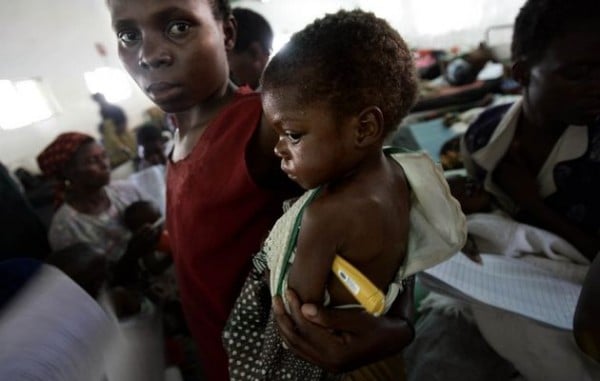Child hunger cuts Malawi economic growth -Study
Poor childhood nutrition costs Malawi’s economy nearly $600 million, 10 percent of its GDP, annually because of increased healthcare expenses and low workforce productivity, according to a joint U.N.-government study released on Wednesday.





Years of stunting among children who did not get enough vitamins and minerals in the first two years of life affects about 4.5 million working-age Malawians, who were unable to reach their full potential, the study said.
Sixty percent of Malawian adults suffered from stunting as children, the study “The cost of Hunger in Africa: The Social and Economic Impact of Child Undernutrition in Malawi”, said.
In a country where two thirds of workers are engaged in manual labour, child undernutrition cost more than 10 percent of GDP in 2012, the most recent year with complete data, the study said.
“As a country, we are so worried about this problem,” Felix Pensulo Phiri, director of nutrition at Malawi’s Health Ministry, told the Thomson Reuters Foundation. “Every year, there are certain districts that don’t have enough food.”
Its economy largely dependent on agriculture, Malawi is a poor, landlocked country in southeastern Africa where bad weather periodically hits crops and leaves the fast-growing population short of nutritious food.
Almost half Malawi’s children, 1.4 million, are stunted today, the U.N.’s World Food Programme (WFP) has reported. This has fallen from about 60 percent a generation ago.
Malawi has been making slow progress in reducing hunger among children, helped by an economic growth rate that the World Bank said was above 5 percent in 2014.
The government is trying to improve agriculture and empower female farmers, Phiri said, adding that the country is “moving in the right direction”.
WFP official Sarah Rawson told the Thomson Reuters Foundation that poor families often spend their food budget on maize, which fills bellies but does not provide enough nutrients to keep children healthy.
“Vegetables and vegetable seeds are less common and more expensive,” she said, adding that the situation is slowly improving.




Mukadzaona chinthu chonyasa chitaimilila pa malo oyela mudzadziwe kut……..
A year old kid eats alot of nsima and beans to fill its tender belly surrounded by curious flies.Poverty stricken parents cannot afford to buy nutritious food for their children.Free nutritious food provided by Unicef is found to be sold by health workers in villages instead of supplying to malnourished kids.This is happening with rural health centres.
The goverment have see how we malawians being affected in most field eg in health sector,education sector among other due to misuse of the money.The goverment is failling to make good budget and the say because of cashgate which affects the budget while it’s like that at all.The other thing is that we do rely on things that cannot help us at all ,we use to live in town and cities doing nothing ‘bola tilikutauni’ without working instead going back in the village and use your power in the farm with your family to grow crops. In addition. the work… Read more »